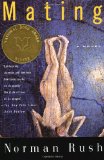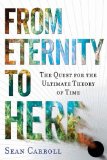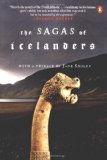Category: Books & Learning
My thousandth book: Fate deems it so
March 23, 2010 | 1 comment { Books & Learning, Letterpress }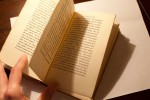
I’ve been shopping at Powell’s City of Books for my entire life, and as such, maintain a complicated, sometimes fretful relationship with the enormous bookstore not unlike relationships I might carry on with a human, full of bluster and happy times and occasionally anger. In the way of a blunted, old friendship, sometimes I take for granted the gems that still can be found.
My goal was to find a good edition of Plato’s Republic, but I was in, oh, what you might call the Plato section; this being Powell’s, reputed to be the largest bookstore in the free world, you could probably build an inhabitable structure out of their selection of Platonic texts. Tucked into the rows somewhere, which, by dint of the astronomical number of volumes Powell’s holds and the rather unassuming dun brown color of the spine, was an adorable copy of Plato’s Symposium or Supper from the Nonesuch Press, from 1924.
Book Review: “Mating” by Norman Rush
March 21, 2010 { Book Reviews }This is not a book for the impatient. Dense, demanding and highbrow, Norman Rush’s National Book Award-winning novel about an obsessive academic chasing idealized love in the Botswana bush of the early 1980s is both adorable and infuriating in its impenetrable cleverness.
To you, the reader, Norman Rush says “You’d better work as hard as I did.” Mating demands familiarity with all of the major liberal arts fields, from western philosophy to political theory. The vocabulary is borderline cruel, forcing me to keep a dictionary handy. Echt, adumbrate, lares, bouleversement, noetic, crescive, elenchus, divagate, apercus, anschluss, sessile—on nearly every page of the 500-page intellectual trial was a word I’d never even seen before. What was he thinking? Does he hate us? Maybe not, but you’d better be up-to-date on your classes of socialism and your grasp of Middlemarch and Latin phraseology.
Status Check: Books and Learning progress so far, 2010
March 18, 2010 { Books & Learning }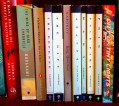
At the beginning of the year, I set some outlines for some reading I’d like to accomplish in 2010. These goals represent not only book titles, but, in some cases, areas and concepts I’d like to explore. There’s some philosophy and some science in here, as well as some classic novels I never seem to get around to reading. Let’s see how it’s going.
Book Review: “The Drunkards Walk: How Randomness Rules our Lives” by Leonard Mlodinow
March 16, 2010 { Book Reviews }Okay, I confess. I know that A User’s Guide to the Universe edged out The Drunkard’s Walk in this poll about which science title I should read next, but in true me fashion I ended up purchasing all four books. And when the package arrived and I scanned the first pages of each, I found it entirely impossible to put Mlodinow’s fantastic surveying romp through probability, chance and statistics down. I read the first 100 pages in one sitting.
This is the kind of book I unqualifyingly recommend to everyone. Most things I read and like have audience segments. I can’t really recommend Dumas to my friend who really loves YA novels; I don’t think David would be into Jane Austen. But this book? Read it, read it, read it.
Book Review: “Sense and Sensibility” by Jane Austen
March 11, 2010 | 1 comment { Book Reviews }At this point I feel like I could easily write a computer program to write a passable Austen novel. Sure, she’s droll and she invented an entire genre; she made social commentary where social commentary was otherwise essentially impossible for someone of her gender and station.
All good. All well-written. All in all an easy and quick read. The good guy generally wins. The good girl always does. The good girl then serves to deliver slightly heavy-handed moral allegory. Not that the morals are in any way not those that we should strive for–it’s just a bit of a pretty picture.
Mmmm, Fragrant: The dangers of the distillation season
March 9, 2010 { Books & Learning, Hobbies and Projects }
With the early arrival of “magnolia season” here in town, I’m looking ahead to the year’s bounty in terms of things I can heat up a lot and force oil out of. Yep, it’s almost time to take the big ol’ Portuguese alembic copper pot still off of the shelf.
The great hurdle with distilling your own essential oils is obtaining knowledge.
This is unfortunate, because mistakes are not always benign in this craft and I could sure use a strong guiding hand. Distilling the wrong kind of cedar can make your lungs bleed. Being a doofus about your condenser setup can get you exploded.
Book Review: “Ficciones” by Jorge Luis Borges
March 5, 2010 { Book Reviews }It took me nearly a year to complete Borge’s collection of short stories called Ficciones. This compilation, cited often as the best introduction to the Argentinian writer’s oeuvre, has about 20 stories, written in the mid-20th century, that range between fantasy and satire, psychological thriller and eerie psychosis.
Borges thrives in describing off-kilter dream states. He explores sacred geometries—labyrinths, rhombuses—through which his characters move toward heroic or anti-heroic transformation. Weird stuff. Captivating, strange, difficult.
Reader Question: Help me choose my next science title!
March 4, 2010 | 2 comments { Books & Learning }My personal library’s science section is looking downright pathetic. Unlike other subjects—like modern fiction and history—for which new releases find their way to me effortlessly, my science books just keep staling and aging over there, sadly. And there are far too few of them in general.
Please vote on which recent science release I should read next! You’ll notice a cosmology-physics bent to these titles—that’s because the fields intrigue me, a lot.
Book Review: “The Sagas of the Icelanders” (Penguin Classics Deluxe)
March 3, 2010 { Book Reviews }The Penguin Classics Deluxe Edition collection of The Sagas of the Icelanders is imposing both for its physical dimensions (hint: doorstoppish) and its content. These prose stories, written down sometime around the 14th century or so based on happenings in the 10th century, are a mix of actual things that happened and (hopefully) apocryphal bloodbaths that surpass any horror movie I’ve seen in terms of very messy body count.
Book Review: Venetia Kelly’s Traveling Show by Frank Delaney
March 2, 2010 { Book Reviews }Frank Delaney’s most recent novel is a misty-sweet race through softcore Irish political history, country farms and criminal intrigue. We watch a father’s obsession turn into a son’s fate, in the framework of the Vaudevillian traveling show of the novel’s title character.
This book is charming: Delaney knows how to woo his Ire-phile gaga American audience, and he’s keyed right into his early-1930s setting.
From the Archive
From the archive, a few random posts that you might not have seen before.
- Jan 26, 2010 { Photos }
Photo: The First Thing to Flower in our Yard this Year - Nov 20, 2007 { Geek }
links for 2007-11-20 - May 27, 2010 { Travel }
Day 2: Seattle and on toward Reykjavík - Jun 16, 2009 { Transformative Treasure Hunt }
Transformative Treasure Hunt: Welcome, David!

